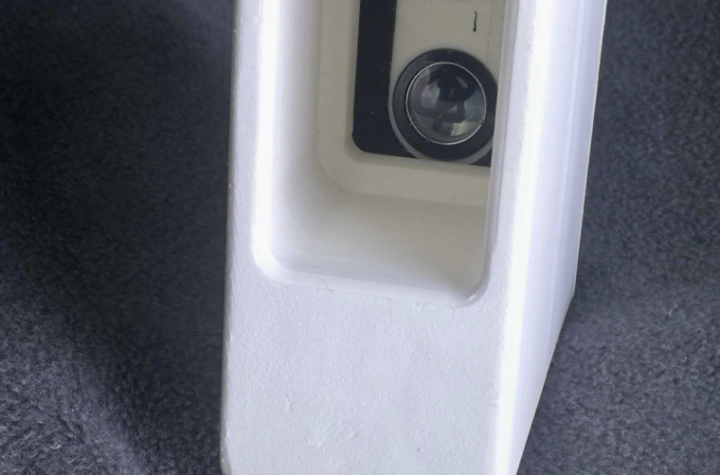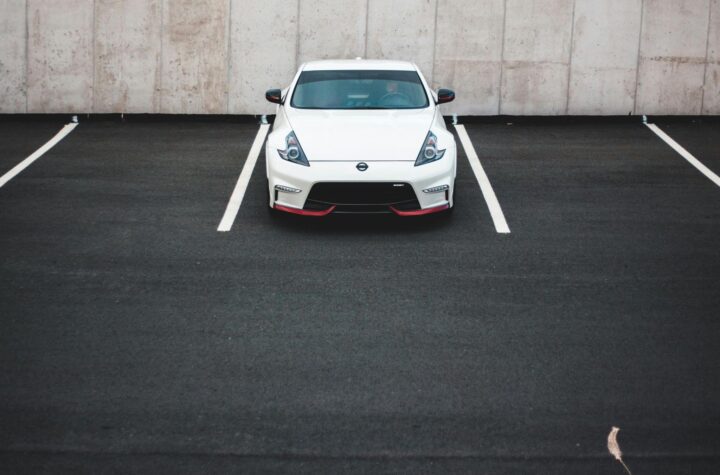
Photo by Richard Biros from Unsplash
In the modern era, cars are not just vehicles for transportation but rather advanced machines that require safeguarding as an investment. Each day, a plethora of modern cars with their high-tech interiors and delicate finishes are exposed to innumerable dangers. These include weathering, which remains a significant threat to the machine’s appearance, and the always-present theft risk. Traditional methods are no longer enough to protect cars from new threats thus artificial intelligence (AI) is becoming increasingly necessary to protect cars.
AI has numerous possibilities in the automotive sector to revolutionize car protection. Let’s explore how AI transforms a car cover from a passive protective layer to an active guard that can ensure the car is safe from many known and unknown dangers.
The Evolving Landscape of Automotive Protection
The days when a tarp or a garage were an acceptable way of guarding your car have long gone. As vehicles become increasingly advanced, the threats to them expand. While conventional car covers protect from dust and rain, they neglect to protect against environmental injury, robbery, and vandalization. These dangers necessitate a unique type of car protection that can recognize and neutralize various threats.
The automotive protection industry is rapidly changing, and the need for options beyond physical barriers drives the transformation. Vehicle exteriors can deteriorate due to acid rain, UV light, extreme temperatures, and property thefts or damage. It is becoming increasingly clear that the future of automotive safety lies not in static precautions but in dynamic system protection that can anticipate and forecast potential hazards.
AI: Revolutionizing Car Covers
The introduction of intelligent car covers has several previously unimaginable advantages in automotive protection. AI has changed how owners buy car covers, which is at the core of this transformation. Purchasing a car cover was previously just that – a cover. Wrapping your mind around the thought that any solution might extend the life of your vehicle and protect it from otherwise hard-to-trace threats like moisture, frost, or overheating was unthinkable.
However, there are many benefits to AI-powered cars covered by environmental monitoring systems. It monitors and takes in variables such as temperature, humidity, and UV radiation, adapting properties accordingly. For instance, if it’s a hot day, the cover might reflect more sunlight to keep the interior cool. It might let in more air to prevent condensation.
AI helps to enhance car covers through theft prevention. Besides protecting the vehicle, bright covers have sensors and alarms, and owners can receive a notification on their phone if someone tries unauthorized removal or restricts engine access. This serves as an effective deterrent to potential thieves who would think twice before making a move.
Lastly, with the help of AI, self-repairing car covers are on their way to improvement. Through advanced materials and AI-controlled sewing mechanisms, the covers can repair minor damages like tears on their own, aligning themselves to other angles. This ensures the cover’s longevity and reduces expenses one would incur for the repair and replacement.
Manufacturers of AI-powered car covers use intelligence systems to analyze user preferences and environmental data for personalized, efficient products. They ensured the car cover material and design cater to customers’ needs and the area’s climate.
Thus, buying a car cover has changed forever, and consumers have options that offer more interest than mere physical protection. This application of artificial intelligence within car cover manufacturing demonstrates how technology is evolving automobile security systems and coverage, making them more intelligent, responsive, and personal.
Benefits and Challenges of AI-powered Car Covers
The emergence of AI-powered car covers has already proven its efficiency by expanding the level of protection and convenience for car owners. Yet, as with any technology, it implies numerous challenges and precautions that should be considered.
Benefits
- Enhanced Protection: AI-based car covers provide superior protection from various threats. These include environmental threats such as UV exposure, extreme weather, and potential theft. Self-repairing functions can deter potential offenders by reforming holes or tears. Regardless of the environment, the vehicle is always protected.
- Reduced Maintenance and Repair Costs: The ability of some AI car covers to self-repair could save money. When a small amount of harm is done, the cotton replenishes and maintains protection functionality. It prevents the increasing frequency and cost of replacing damaged covers.
- User Convenience and Customization: Monitoring environmental conditions and the capacity to adjust to them offers consumers unrivaled convenience. The AI system permits customization based on the user’s preference and the area’s specific data. It guarantees that each vehicle’s AI cover meets its owner’s and the vehicle’s requirements.
- Smart Home Integration: Finally, the growing popularity of smart homes allows car covers based on AI to be integrated into a more extensive defensive system. Such integration could handle environmental safeguards, including the steering wheel exposure based on forecasts or one’s timetable.
Challenges
- Cost considerations and accessibility: The technology used to create these AI-powered car covers dramatically differs from regular ones. As such, these intelligent covers are more expensive, and car owners may need more funds to afford them.
- Data privacy concerns: Due to the sensors and connectivity, the car covers will likely raise data privacy and security concerns. People may be uncomfortable with the privacy of their data, especially those related to their car’s location and use patterns.
- Reliance on AI algorithms and connectivity: The functionality and benefits of these car covers are highly reliant on the sophistication of AI algorithms and the connection to the owner’s device and car. Flaws in these areas will affect the efficiency of the car covers.
Further advancements and wider commercial implementation of AI-powered car covers can resolve the drawbacks. The benefits are significant enough that intelligent car covers are likely to surpass traditional car covers once the technology becomes commercially accessible at a more affordable price.
The Future of AI and Automotive Protection
With the continued advancement of technology, one can expect increasingly more creative and convenient applications that will maximize vehicles’ security. A promising development path is the integration of AI-powered systems into self-driving cars. These systems might feature predictive collision avoidance mechanisms and real-time hazard assessment functions. They could use AI to protect the vehicle, passengers, and pedestrians.
The potential of AI is to reach the point where vehicles can communicate with each other and eliminate risks in real-time. Additionally, AI drones monitoring the area and safeguarding parked cars may be more than a convenient trend. However, most of these innovations are currently hypothetical and outside the development pipeline due to limitations in AI system technology.
With the increased use of AI-based solutions in automotive protection, ethical considerations such as data privacy, consent, and the risk of excessive reliance on technology must be considered. Striking a balance between ensuring one’s safety and infringing personal rights will be a complex challenge. Nonetheless, AI has the potential to save billions of lives through automotive safety systems, marking a new era of safer and more reliable driving.
Photo by Lukasz Niescioruk from Unsplash
Conclusion
The fusion of AI and automotive protection is a creative path full of potential and challenges. This transformation from basic car covers to AI-powered security solutions could change how we protect our vehicles. These advancements aim to provide improved and uninterrupted protection, reduced pollution and maintenance costs, and unparalleled consumer control and customization. Yet, proper management is critical for user access and security. AI can significantly benefit the automotive industry, improving safety features and entering a new era of protection.











More Stories
Click Shield from MIKROE simplifies integration of Arduino Portenta with over 1600 Click boards
Optimizing Mid-Power Silicon MOSFETs for Automotive Applications
Paolo Pininfarina named the 2024 Laureate of The American Prize for Design